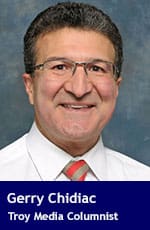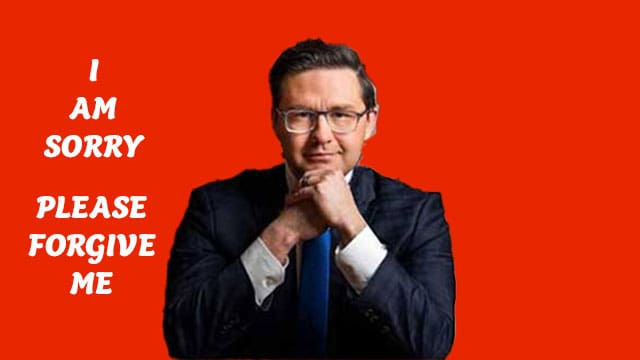I blamed Poilievre for the fact that his local MPs closed their constituency doors to the public. I was wrong
 I owe an apology to Pierre Poilievre, the leader of the Conservative Party of Canada.
I owe an apology to Pierre Poilievre, the leader of the Conservative Party of Canada.
In a recent column, I insinuated that he was to blame for the fact that local Members of Parliament from his party have closed their constituency doors and become inaccessible to the public. One of my local MPs, Todd Doherty, sent me a polite message on X informing me that Poilievre had nothing to do with this.
Unfortunately, the actual reason is far more nefarious and should be of great concern to all Canadians.
Doherty stated, “These security protocols come from the House of Commons Sergeant at Arms, not the leader of our or any other party. The rise in threats of violence and even death to MPs of all stripes has had a profound impact on myself, my colleagues, and our families. My family has been threatened in our home and even in their places of work.”
 |
| Related Stories |
| How Poilievre can improve healthcare in Canada
|
| How Pierre Poilievre is winning over female voters
|
| Trudeau apologists putting a target on Poilievre
|
While I have been largely sheltered from such threats as a columnist, my editor at Troy Media has shared stories similar to Doherty’s. Again, they come from extremists on all sides of every major issue.
The vast majority of these threats come from online trolls who remain hidden in a web of anonymity.
Freedom of speech is essential in a democracy. Every freedom, however, comes with a responsibility. We have a right to express our opinions, but we also need to respect the rights of our neighbours to life, liberty, and security of person.
We often forget that freedom of speech also gives listeners rights. According to Robert Fellmeth, professor of public interest law at the University of San Diego, “The audience has the right to hear, to listen, to understand, and to know something about the speaker … The idea behind speech is not simply to make noise; it’s to advance understanding, to advance knowledge … Therefore, there should be a requirement … that speakers identify who they are.”
With artificial intelligence becoming more and more prevalent in our world, we clearly need better legislation to protect listeners and to hold speakers accountable for what they are saying.
Free speech requires that we challenge the ideas of others while respecting their dignity. For a democracy to be functional, this needs to be modelled by a country’s leaders. The House of Commons has always looked like an unruly classroom, but our leaders were willing to listen to each other for the well-being of all Canadians. This is why we have public healthcare and why Indigenous and non-Indigenous Canadians are moving forward on a path of reconciliation.
Unfortunately, the House of Commons has become increasingly adversarial, and this is felt everywhere in Canada. Perhaps the best Canadian response to this antagonism would be to require Justin Trudeau and Pierre Poilievre to travel together by canoe from a remote island in the Canadian Shield to Ottawa and simply learn to get along.
We are at an unprecedented moment in history, where powerful individuals and powerful countries are demonstrating complete disregard for international law, jurisprudence, human dignity, and human life. History has shown where this kind of impunity and violence leads, and we don’t want to go there.
After teaching my Grade 10 class about the Holocaust, we examined the human rights documents created to make “never again” a reality. At that moment, I realized how desperately I want to use my voice as an educator and a columnist to ensure that the Universal Declaration of Human Rights does not remain words on paper. It must become the standard for how we treat one another.
We need better laws to protect free speech, we need to honour the human dignity of all who walk this world with us, and we need political leaders who are willing to put these ideals into practice. The alternative is unthinkable.
Gerry Chidiac specializes in languages and genocide studies and works with at-risk students. He received an award from the Vancouver Holocaust Education Centre for excellence in teaching about the Holocaust.
For interview requests, click here.
The opinions expressed by our columnists and contributors are theirs alone and do not inherently or expressly reflect the views of our publication.
© Troy Media
Troy Media is an editorial content provider to media outlets and its own hosted community news outlets across Canada.

